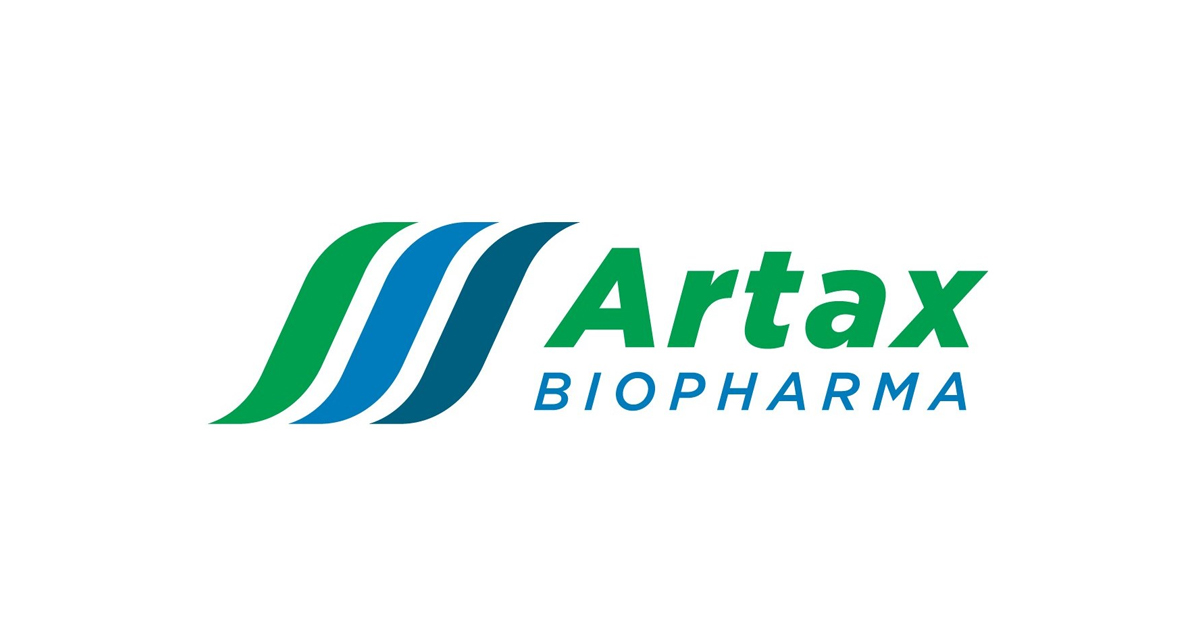First small molecule to modulate the fundamental mechanism of T cell activation underlying autoimmune pathology
Statistically significant improvements in T cell and psoriasis-related biomarkers in line with PASI improvements in Phase 2a in patients with psoriasis
Results further confirm well-tolerated safety profile, with no serious adverse events or discontinuations
Cambridge, MA, May 9, 2025 – Artax Biopharma, Inc., a clinical-stage biotechnology company focused on transforming the treatment of autoimmune diseases, today announced the presentation of Phase 2a results in a late-breaking oral presentation with a companion poster at the Society for Investigative Dermatology 2025 Annual Meeting, taking place May 7-10, 2025, in San Diego, California.
“We’re highly encouraged by the safety profile observed in our Phase 2a study and the notable impact of our oral Nck modulator AX-158 on key disease biomarkers and clinical severity scores,” said Dr. Rob Armstrong, Chief Executive Officer of Artax Biopharma. “These results further support the potential of AX-158 to offer a truly novel mechanism to modulate TCR signaling rather than inhibit it, and we’re committed to continuing to advance this promising candidate to meet the unmet needs of patients with T cell-mediated autoimmune diseases.”
Oral presentation details
“AX-158 Proof-of-Mechanism Safety Study: Evaluating a Novel T cell Receptor (TCR) Signal Modulator in Patients with Mild-to-Moderate Plaque Psoriasis (NCT05725057),” D.S. Batty, C. VanDeusen, S. Garcet, J. Krueger.
AX-158 was evaluated in a Phase 2a trial in participants with mild to moderate plaque psoriasis in multiple centers in the UK. Participants were randomized 2:1 to receive a single daily dose of 10mg AX-158 or placebo. A total of 31 participants were treated for 28 days. The primary endpoint of the study was safety, with secondary endpoints to demonstrate proof of mechanism.
Key findings include:
- When administered every day at a 10mg dose, AX-158 was found to be safe and well-tolerated
- No Grade ≥ 3 treatment-related adverse effects (TEAEs)
- No discontinuation due to TEAEs
- No serious or opportunistic infections
- Longitudinal skin biopsies showed a trend of reduction in the number of CD8+ T cells in patients treated with AX-158
- Biomarker analyses revealed statistically significant impacts on IL-17 and IL-12 signalling pathways
- Statistically significant modulation of multiple psoriasis-related gene sets was observed (MAD3, MAD5, Yao and Gudjonsson*)
- At end of study, only patients who received AX-158 achieved PASI50 or greater
Dr. Scott Batty, Chief Medical Officer of Artax Biopharma, commented, “We are deeply grateful to the investigators, their teams, and all the participants who made this progress possible. AX-158 has a unique mechanism of action that modulates TCR signaling to restore tolerance to self while maintaining response against pathogens. We are excited to continue advancing AX-158 and exploring its broad potential across T cell-driven autoimmune diseases, including atopic dermatitis and rheumatoid arthritis.”
Dr. James Krueger, Head of Laboratory for Investigative Dermatology at the Rockefeller University and member of the Scientific Advisory Board at Artax Biopharma, added, “From my blinded analysis of the patient samples in this phase 2a study, it is clear that AX-158 shows a clear impact on T cells and related biomarkers in this patient population.”
About Artax Biopharma
Artax Biopharma is a clinical-stage biotechnology company transforming the treatment of T cell-driven autoimmune diseases. Artax’s first-in-class oral small molecules aim to deliver immune system modulation without immunosuppression, potentially unlocking new treatment options as both monotherapy and in combination with other treatments. Artax Biopharma is based in the Boston area and raised funding from investors including Advent Life Sciences, Sound Bioventures, The Termeer Family Office, the Fuhrer Family Office and Columbus Venture Partners. For more info, see www.artaxbiopharma.com or follow us on LinkedIn.
About Nck modulation
We believe there is significant potential for Nck modulation to revolutionize treatment of T cell-driven diseases. Immunomodulation maintains healthy control of the immune system, while addressing the underlying source of T cell-driven diseases. Central to a well-functioning immune system is the T cell receptor (TCR). When TCR signaling becomes dysregulated, it causes T cell-driven conditions, including autoimmune diseases. We believe the immunomodulation mechanism offered by our investigational agents holds broad potential to revolutionize how these T cell-driven autoimmune diseases are addressed, while not impairing the ability of a patient’s immune system to function properly.
AX-158, our lead Nck modulator, has shown strong, broad cytokine modulation as well as modulation of mixed lymphocyte reactions. Good data on therapeutic efficacy with AX-158 were observed in murine models of self-antigen activation (EAE), with a prolonged pharmacodynamic effect in EAE, suggesting durable immune modulation. AX-158 showed no immunosuppression in models of strong antigen stimulation. Studies with AX-158 showed substantial preclinical evidence of activity in the Th2, Th17, Th1/Th0 pathways, suggesting that applications could be quite broad across the autoimmune space.
AX-158 is an investigational therapy that has not been approved by any regulatory authority worldwide, and its safety and efficacy have not yet been established.



